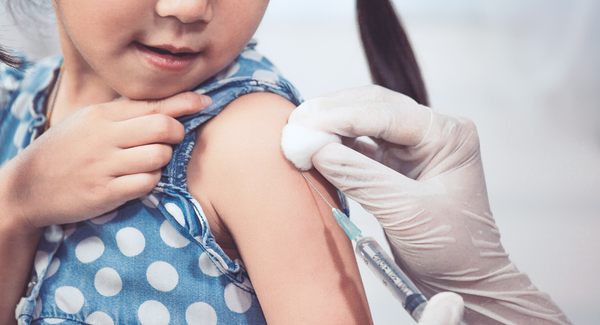Arthritis Patients: Get Your Flu Shots
As the COVID-19 pandemic continues, getting your flu and pneumonia vaccinations — as well as your COVID-19 vaccination — is vital to protecting your health.
By Jill Tyrer | Updated 9-15-2021
Getting vaccinated against COVID-19 and its variants continues to be essential to protecting yourself and those around you. But just as important is getting vaccinated for influenza (the flu) and making sure your pneumococcal vaccine is up to date — especially for people with inflammatory forms of arthritis who take immune-suppressing medications.
According to the Centers for Disease Control and Prevention (CDC), the flu vaccines have been updated for 2021-2022 flu season to provide protection against four different flu viruses, also known as a quadrivalent influenza vaccine. Flu and COVID-19 vaccines can be received at the same time.
Autoimmune Risks
The flu is miserable and potentially dangerous for anyone, but it’s especially so for people with inflammatory arthritis. People with rheumatoid arthritis (RA), lupus, psoriatic arthritis and other autoimmune diseases are at higher risk of flu, pneumonia and other infections. While the diseases themselves change how the immune system functions, many of the medications used to control the diseases suppress the immune system, making patients more vulnerable to infections.
Getting a flu shot “is particularly important for patients with rheumatic diseases,” says rheumatologist Leonard Calabrese, DO, who heads Cleveland Clinic’s Clinical Immunology section and manages its Clinical Immunology Clinic. “They’re more vulnerable to getting the flu, they’re more vulnerable to complications of the flu, and the flu vaccine has been demonstrated year in and out to help protect from those complications.”
This remains true during the pandemic. The vaccines “can lower the burden of these potentially serious, if not fatal, infections in our vulnerable patient populations,” he adds. “Rheumatologists are all in: We want all of our patients to get vaccinated — and we want all of their families to get vaccinated because they’re the ones who are going to give it to [patients].”
Flu Vaccination
It’s not clear how bad flu season will be this year. In the Southern hemisphere, including Australia and South America, where winter and flu season are coming to an end, flu-like illnesses were at “historically low levels,” according to the Australian Influenza Surveillance Report. This may be due to the widespread, global use of masks, physical distancing and other hygiene measures. With continuing COVID safety protocols in place in the Northern hemisphere, too, flu season might also be mild here.
But you still should get a flu shot. The CDC recommends that everyone 6 months of age and older (with some exceptions) get vaccinated against flu by the end of October each year. However, as long as flu viruses are circulating (typically between October and May), it’s not too late to get vaccinated. Adults, especially those older than 65, should not get vaccinated early (in July or August) because protection in this group may decrease over time.
Children can get vaccinated as soon as vaccine becomes available. Some children need two doses. For those children it is recommended to get the first dose as soon as vaccine is available, because the second needs to be given at least four weeks after the first. Children under 12 may not yet receive a COVID-19 vaccine, so getting a flu shot and taking other protective measures is doubly important.
Early flu vaccination is also possible for women in the third trimester of pregnancy, because this can help protect their infants during the first months of life, when they are too young to be vaccinated. (Coronavirus vaccines are also safe for pregnant women.)
Vaccination is not bulletproof protection against influenza; but even if you get the flu, having the shot will reduce its effects and shorten its duration.
There’s no reason to worry about getting vaccinated. A flu shot will not give you the flu or increase your risk of a flare, says Elaine Husni, MD, PhD, director of the Arthritis & Musculoskeletal Treatment Center at Cleveland Clinic. “The non-live vaccines like the flu and pneumonia shot are very needed and necessary for patients who are immunocompromised because they are more susceptible to flu and pneumonia,” says Dr. Husni.
However, people who are immunocompromised should avoid the nasal spray form (FluMist). It contains a live, though weakened, virus and can be dangerous to people whose immune systems are weak. The virus in the injected form of the vaccine is inactivated (killed).
Pneumonia Vaccination
It’s important to protect yourself from pneumonia, too.
Pneumonia — an infection of the lungs — can result from flu or COVID-19. But the most common source is the pneumococcal bacterium, “and there is an effective vaccine for that,” Dr. Calabrese says. “It’s a two-step vaccine that is recommended for all individuals over 65 and all individuals who are immunocompromised — that means rheumatic disease patients on immunosuppressant therapies, like methotrexate, [corticosteroids], biologics and beyond.”
As with the flu vaccine, this vaccine series reduces the likelihood of getting pneumococcal pneumonia and the severity if you do contract it.
If you are on immunosuppressant medications and it’s been five years since you last had the vaccine, talk to your doctor about getting it again. Dr. Calabrese advises his patients do so, but not all experts agree, he says.
The COVID Complication
Because symptoms of the flu and COVID-19 are similar, knowing when to get tested for COVID-19 vs the flu can be confusing. If there’s any doubt and you have symptoms, get a COVID test, say experts.
Flu vaccines and COVID-19 vaccines can be given at the same time. Some medications, including the biologic rituximab and methotrexate, can reduce the flu vaccines’ effectiveness, Dr. Calabrese says. (Rheumatologists typically work around that by holding off on a patient’s methotrexate dose for a couple of weeks after the patient is vaccinated.)
Furthermore, a CDC advisory committee advises certain immunocompromised people — including those being treated with high-dose corticosteroids and biologic medications — to get a third Moderna or Pfizer COVID-19 vaccine, matching the ones they previously received, if possible.
So even after you get your flu and pneumococcal vaccinations, it’s important to continue taking measures to protect yourself and other people, including washing your hands frequently, keeping distance between yourself and others and wearing a mask.
“There’s a double reason to wear a mask and socially distance,” Dr. Calabrese says, “for both COVID-19 and influenza.”
Coronavirus Updates
Sign up today for email updates on coronavirus and arthritis.


